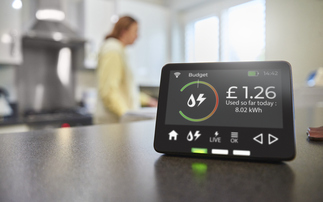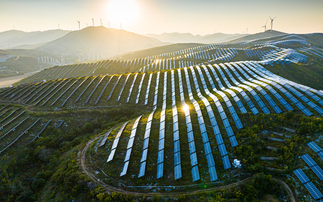Research by Sustainable Energy for All initiative finds just a quarter of the required investment for universal electricity access is being delivered
Progress towards global clean energy access goals is being hamstrung by inadequate investment from both public and private financial institutions, according to a report published yesterday by the Sustainable Energy for All initiative.
The latest research, contained in the NGO's Energizing Finance report, finds that finance is drastically below the levels needed to deliver universal access to electricity and clean cooking by 2030, as called for by UN Sustainable Development Goal 7.
Now in its third year, Energizing Finance tracks financial flows across developing countries in sub-Sarahan Africa and Asia, which together account for nearly 80 per cent of those living without access to electricity and clean cooking facilities.
The new data show less than a quarter of the investment required to meet universal electricity access in these countries by 2030 is taking place. The funding gap remains despite an overall positive trend in investment levels, which at $36bn in 2017 was substantially higher than the $30bn committed the previous year. However, just $12.6bn of this total related to electrification that would benefit residential customers, far below the $51bn needed to meet universal access.
The report illuminates a far worse situation for the roll out of clean cooking technologies, where an annual investment of $4.4bn is required to close access gaps by 2030. The report tracks just just $32m in finance commitments through 2017 - less than one per cent of the required total, and a 73 per cent decrease on the previous year.
Other key findings include revelations that investment in off-grid energy solutions made up just 1.2 per cent of total electricity financing, a proportion that the group describes as "abysmally low".
It also flags concerns over continued investments in fossil fuels, particularly by China and India. 60 per cent of all coal financing tracked in 2017 was sourced from the Export-Import banks of India and China for projects in Bangladesh, the report finds.
"Yet again we're seeing that overall investments are falling far short of what is needed to meet global energy goals," said António Mexia, Chairman of the SEforALL Administrative Board and CEO of Energias de Portugal (EDP). "While some positive trends are emerging, we need much greater investment in centralised and decentralised renewable energy solutions, as well as urgently address the need for a big market solution to clean cooking access."
While highlighting the clear ramficiations for the world's global energy goals, the report also warns that energy access plays a key role across much of the global development landscape. "This shortfall could have severe consequences for global development, as energy access is an impetus for fulfilling several of the Sustainable Development Goals (SDGs) - including those for health, education, food security, gender equality, poverty reduction, employment, and climate action," it says.
The publication of Energizing Finance follows calls from the UK international development secretary Alok Sharma for the World Bank to reform its funding mechanisms to channel more money into tackling the climate crisis, improve gender equality, and ensure vulnerable countries can pay their debts.
Sharma raised the issue during a meeting with World Bank President David Malpass in Washington on Sunday.
The Bank is currently seeking contributions from richer countries for the 19th replenishment of the International Development Association, which provides loans and grants for countries in financial difficulty.
Sharma told Malpass the size of the UK's contribution would hinge on the Bank stepping up its financial support for tackling the climate crisis, particularly to support more vulnerable communities build resilience and disaster preparedness.
Sharma also called for the body to prioritise preserving biodiversity and investing in nature-based solutions such as reforestation, as well as to work on mobilising private sector investment in green infrastructure projects in the poorest countries.









